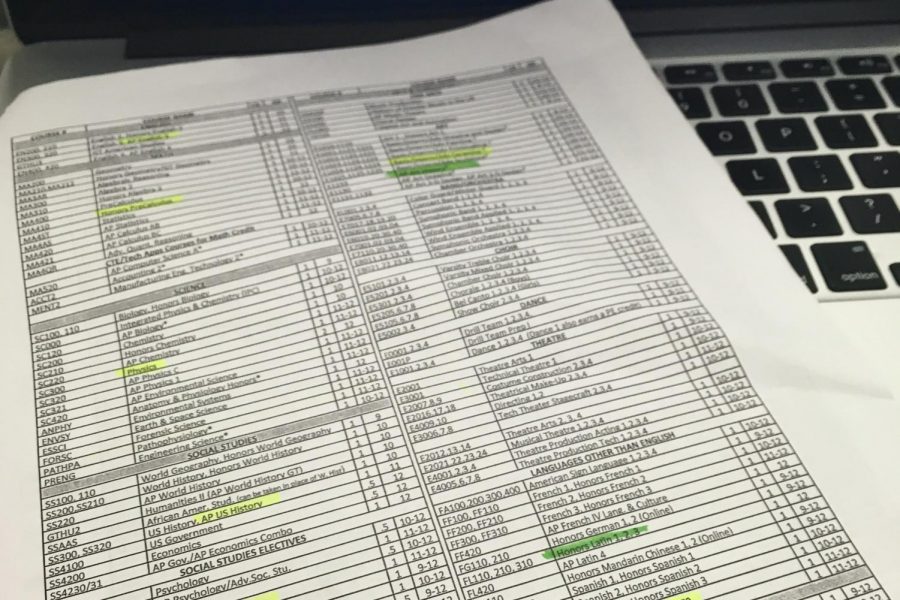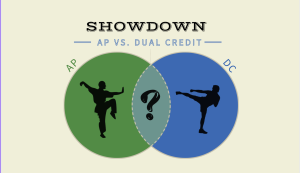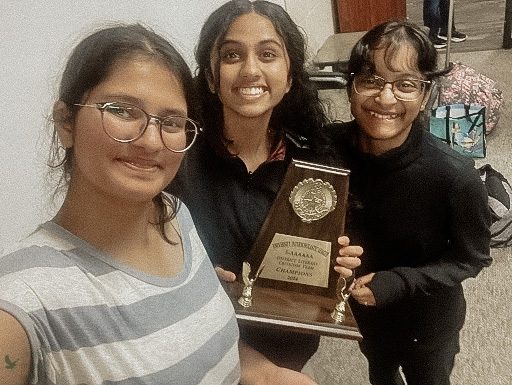Counselors schedule student course-selection meetings
March 2, 2021
Counselors will continue meeting with juniors and sophomores through the rest of March and freshmen in April to discuss course selections for the next academic year.
Students received their paperwork for course selections in January, and that paperwork was due Feb. 5. Counselors have said their goal is to have all class selections solidified by May.
“One of the most common problems students have with course selections is they come in and say, ‘I don’t know how to do it,’ and we show them the information that was in emails sent to them days ago,” counselor Michelle Roach said. “They need to be aware of the information we’re sending out to them already.”
According to Roach, the following steps could help students be ready for their scheduled meetings with their counselors.
Core classes
According to Admissions Director at Wheaton College, Bill McMurray, All high school students who intend to consider a four-year college upon graduation should enroll in one class from each of the “five basic food groups of education” each year: English, math, science, history, and a foreign language.
“I feel like taking all core classes really helps expand my learning,” sophomore Gianna Galante said. “Although I could take it during the summer, taking it during the year seems more beneficial.”
According to Roach, those who pursue a challenging and well-balanced track of core classes throughout high school give themselves the best chance of being embraced by the colleges that offer the academic fit they seek as applicants during their senior year. Almost all colleges require enrollment in core classes each year because it shows dedication to learning and the strength of perseverance. GPA is a major consideration when it comes to college. Earning a C- in an honors or AP class could negatively affect a GPA, especially if the student has to spend so much time earning that grade that other classes suffer.
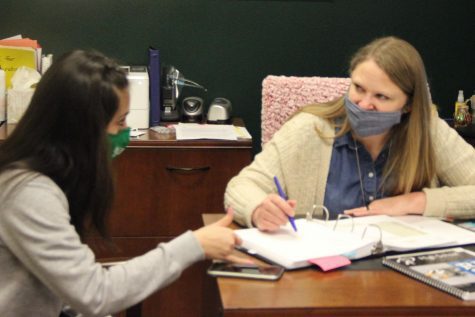
Students also can ask for advice from their parents.
“First, (check if) the class meeting is a requirement you need for graduation,” mother and educator Elizabeth Bish said. “(I ask my children if they have) all of the requirements for graduation? How will this class impact your future, and will it prepare them for the next level or serve as a purpose?”
Pursue strengths
Students who have strengths in a particular field like science or English may aim to pursue it in their classes. For example, a junior who excels at science may choose to take Physics and AP Chemistry in the same year.
“I really like science, so I took AP Biology and Chemistry this year,” Sophomore Maggie Lair said. “Next year I’m going to do AP Physics.”
Keep extracurricular options in mind
Band, orchestra, choir, sports and musical instruments are all options for Prosper High School’s students. Sophomore Margaret Lair says that participating in band has allowed her to meet people and enjoy school more, and parents agree that extracurricular activities engage teenagers and help them foster skills.
“Extracurricular activities provide opportunities to meet new people and teach time management skills,” Bish said. “They foster teamwork and cooperation and keep kids busy so that they do not have time to find trouble.”
Consider dual credit and AP classes
Duel enrollment classes are a method of saving money for college by enrolling in a college course through a high school and taking it during high school along with a student’s regular curriculum, whereas AP courses, aka Advanced Placement, are rigorous courses with an exam at the end of the year. If a student passes the exam, they earn the credit for the college course equivalent and do not need to take it again in college. A benefit of taking dual enrollment courses directly through a local college is that the credits earned in high school have a high chance of fully transferring to that college, should students choose to enroll there after graduation. However, the transfer tends to be only in the state of Texas or neighboring states like Louisiana.
Roach said the most important thing to keep in mind with course selections is balance. “Some students may be able to handle eight AP classes,” Roach said, “while some may only be able to take one. And both are fine options.”
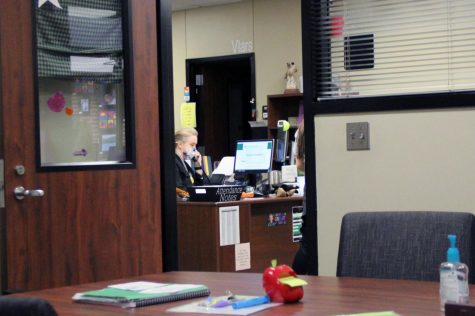
AP courses transfer throughout the nation. However, AP courses are more rigorous. It all depends on the academic needs of the student. Parents agree that it’s important to decide which route is the best fit for each student individually.
“Think about this: do you need calculus in college for your major, or does your major not require you to go that far in math, or will the dual credit math actually provide you with credit in your program?” Bish said. ” I also ask [my children] to think about whether the class will challenge them or not. I don’t want them to take a class that will not challenge them in any way.”
Research the requirements
Finally, colleges have different course requirements. One college may require four years of a foreign language, and another may only require two. A student may wish to tailor their schedule to the requirements of their dream college.
Additional information
Students who wish to be informed on course selections further can visit the counselors in the Lower or Upper Houses in PHS. As well, they can browse the course catalog, tutorial videos and more on the PISD website.


